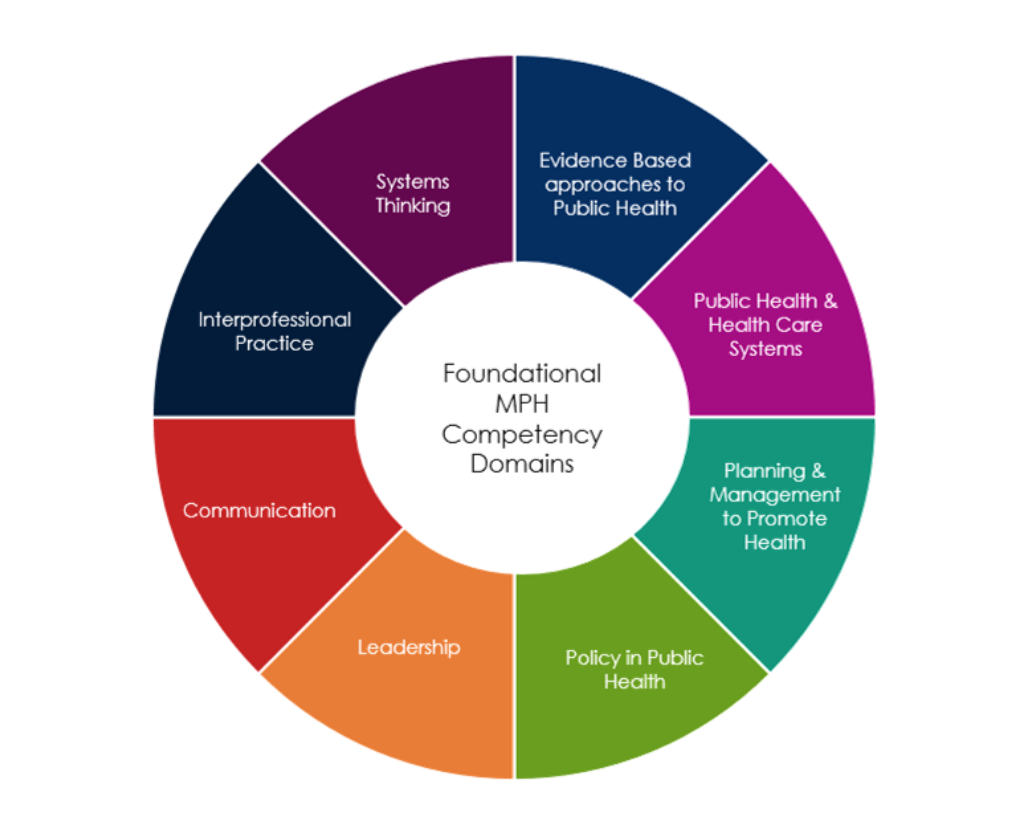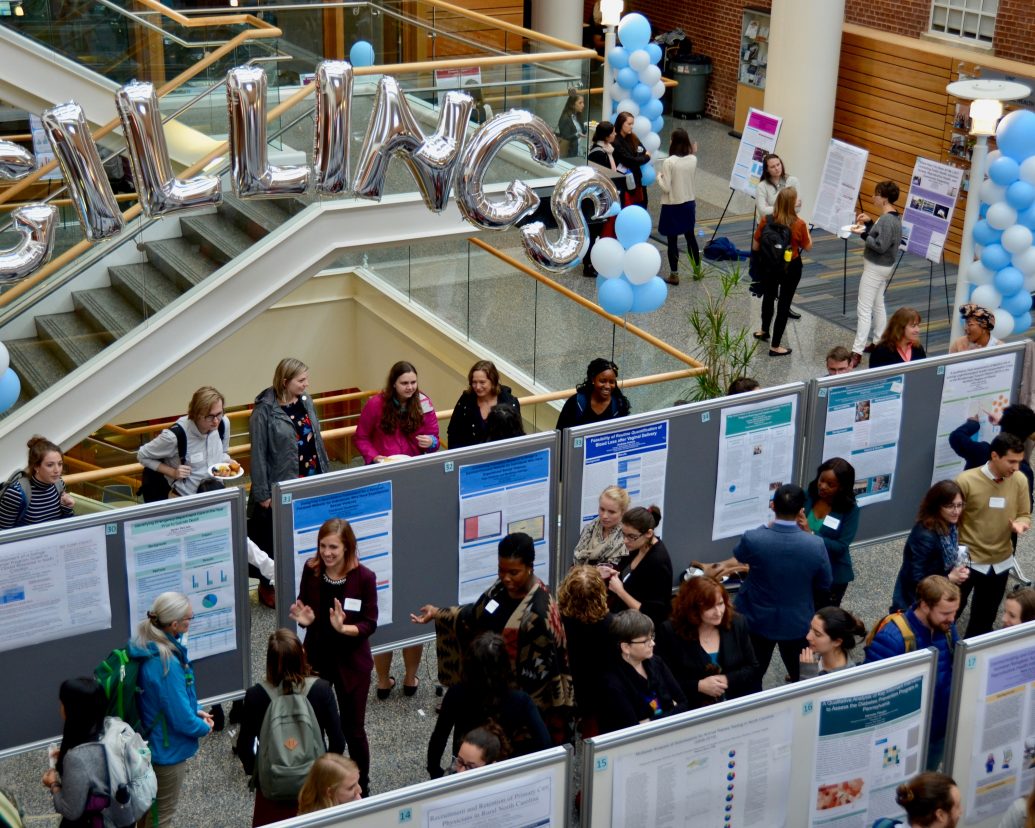We designed the MPH Core with you in mind.
Integrated from beginning to end, the Core will give you the foundation to lead as a public health practitioner in the 21st century. You’ll apply the skills and knowledge you gain in real time. You’ll work on understanding complex public health problems that we face here in North Carolina, the United States and around the world. You’ll even get to see some of your ideas move from concept to action!
Fall semester, you will attain the content, information and methodological skills to define and understand complex public health problems. In the Spring, you will explore strategies for developing multilevel policy proposals and interventions to solve complex problems.
Taken together, the Gillings MPH Core will give you the knowledge, skills and methods you need to thrive in the practicum of your choice and to succeed in your concentration and beyond.
6 courses integrated across the curriculum
The 14-credit MPH Core courses are designed to be taught in sequence. The sequence may vary for online MPH students depending on start date.
Gillings COMPASS (Core Online Modules to Promote and Accelerate Student Success)
A 5-module overview covering ethics and justice, quantitative skills, leadership, teamwork and much more.
SPHG 711 - Data Analysis for Public Health (2 credits)
This introductory course focuses on the biostatistics and analysis methods commonly found in public health. Students will learn to produce, interpret and use straightforward data analyses.
SPHG 712 - Measurements and Methods for Public Health Practice (2 credits)
This course introduces epidemiologic concepts and how to quantitatively describe population patterns of health, inequities and their determinants. Students will focus on what to measure, how to measure it, whom to measure it in and how to do so in ways that minimize bias. These concepts and skills are used to critically review the public health evidence base.
SPHG 713: Systems Approaches to Understanding Public Health Issues (2 credits)
In this course, students will explore: 1) what constitutes a public health issue and why; 2) what factors determine population health patterns and inequities; and 3) strategies for communicating in culturally appropriate ways with diverse audiences about public health issues. Students will work in interdisciplinary teams on an assigned health topic, integrating what they learn in this course with the methodological and analytical skills developed in other courses.
Fall Team Project Deliverable
As part of one of the Fall courses, students will be assigned to groups of 4-5 people who will work as a team throughout the course to develop a white paper. The white paper will describe the prevalence of, and contributors to, a health issue in a specific geographic area and population. The paper will also argue for the importance of the issue as a public health priority.
SPHG 701: Leading from the Inside-Out (2 credits)
This course prepares students for public health practice by introducing fundamental leadership skills necessary to advance equity and recognize and address bias in organizational settings.
SPHG 721 - Public Health Solutions: Systems, Policy and Advocacy (2 credits)
This course introduces students to the health systems and the US health system in particular. It provides an introduction to the role of health policy in addressing public health problems and advancing health equity, and how evidence, law and ethics play a role in policy-making. It provides students with the skills to communicate
information about public health problems and solutions to diverse audiences and introduces them to concepts of public health advocacy.
Spring Team Project Deliverable
Throughout this course students will work collaboratively to develop a solution to the public health issue they worked on for the Fall white paper. The team’s
deliverable will be a comprehensive written proposal and oral pitch describing a proposed solution.
SPHG 722 - Developing, Implementing and Evaluating Public Health Solutions (4 credits)
This course is organized around the Gillings Framework for Planning and Evaluation. Students will develop skills to help refine and enhance their understanding of specific public health problems; identify and prioritize potential solutions; adapt evidence-based interventions for a particular context; and develop, implement and evaluation proposed solutions. In addition, students will learn how to identify and effectively engage with stakeholders throughout this process and how to plan for, conduct and disseminate the results of program evaluations.
The Foundational Core Competencies
The MPH Core courses cover 22 Foundational Core Competencies in 8 domains from our accreditation agency (Council on Education in Public Health, CEPH).

The Collaboration

During the MPH Core, students take part in interdisciplinary team projects, including a white paper in SPHG 713 and a solution proposal in SPHG 722. The team projects give students the opportunity to work with students from other concentrations to leverage collective expertise.
The Instructors and Designers
The Gillings MPH Core is taught by an interdisciplinary team of instructors, allowing the curriculum to draw on essential public health principles, methods and evidence from across disciplines.

Frequently Asked Questions
Have a question? Contact your academic coordinator.
